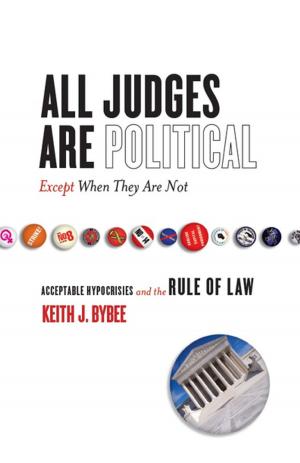The Balance Gap
Working Mothers and the Limits of the Law
Nonfiction, Reference & Language, Law, Gender & the Law| Author: | Sarah Cote Hampson | ISBN: | 9781503602175 |
| Publisher: | Stanford University Press | Publication: | March 21, 2017 |
| Imprint: | Stanford Law Books | Language: | English |
| Author: | Sarah Cote Hampson |
| ISBN: | 9781503602175 |
| Publisher: | Stanford University Press |
| Publication: | March 21, 2017 |
| Imprint: | Stanford Law Books |
| Language: | English |
In recent decades, laws and workplace policies have emerged that seek to address the "balance" between work and family. Millions of women in the U.S. take some time off when they give birth or adopt a child, making use of "family-friendly" laws and policies in order to spend time recuperating and to initiate a bond with their children.
The Balance Gap traces the paths individual women take in understanding and invoking work/life balance laws and policies. Conducting in-depth interviews with women in two distinctive workplace settings—public universities and the U.S. military—Sarah Cote Hampson uncovers how women navigate the laws and the unspoken cultures of their institutions. Activists and policymakers hope that family-friendly law and policy changes will not only increase women's participation in the workplace, but also help women experience greater workplace equality. As Hampson shows, however, these policies and women's abilities to understand and utilize them have fallen short of fully alleviating the tensions that women across the nation are still grappling with as they try to reconcile their work and family responsibilities.
In recent decades, laws and workplace policies have emerged that seek to address the "balance" between work and family. Millions of women in the U.S. take some time off when they give birth or adopt a child, making use of "family-friendly" laws and policies in order to spend time recuperating and to initiate a bond with their children.
The Balance Gap traces the paths individual women take in understanding and invoking work/life balance laws and policies. Conducting in-depth interviews with women in two distinctive workplace settings—public universities and the U.S. military—Sarah Cote Hampson uncovers how women navigate the laws and the unspoken cultures of their institutions. Activists and policymakers hope that family-friendly law and policy changes will not only increase women's participation in the workplace, but also help women experience greater workplace equality. As Hampson shows, however, these policies and women's abilities to understand and utilize them have fallen short of fully alleviating the tensions that women across the nation are still grappling with as they try to reconcile their work and family responsibilities.















